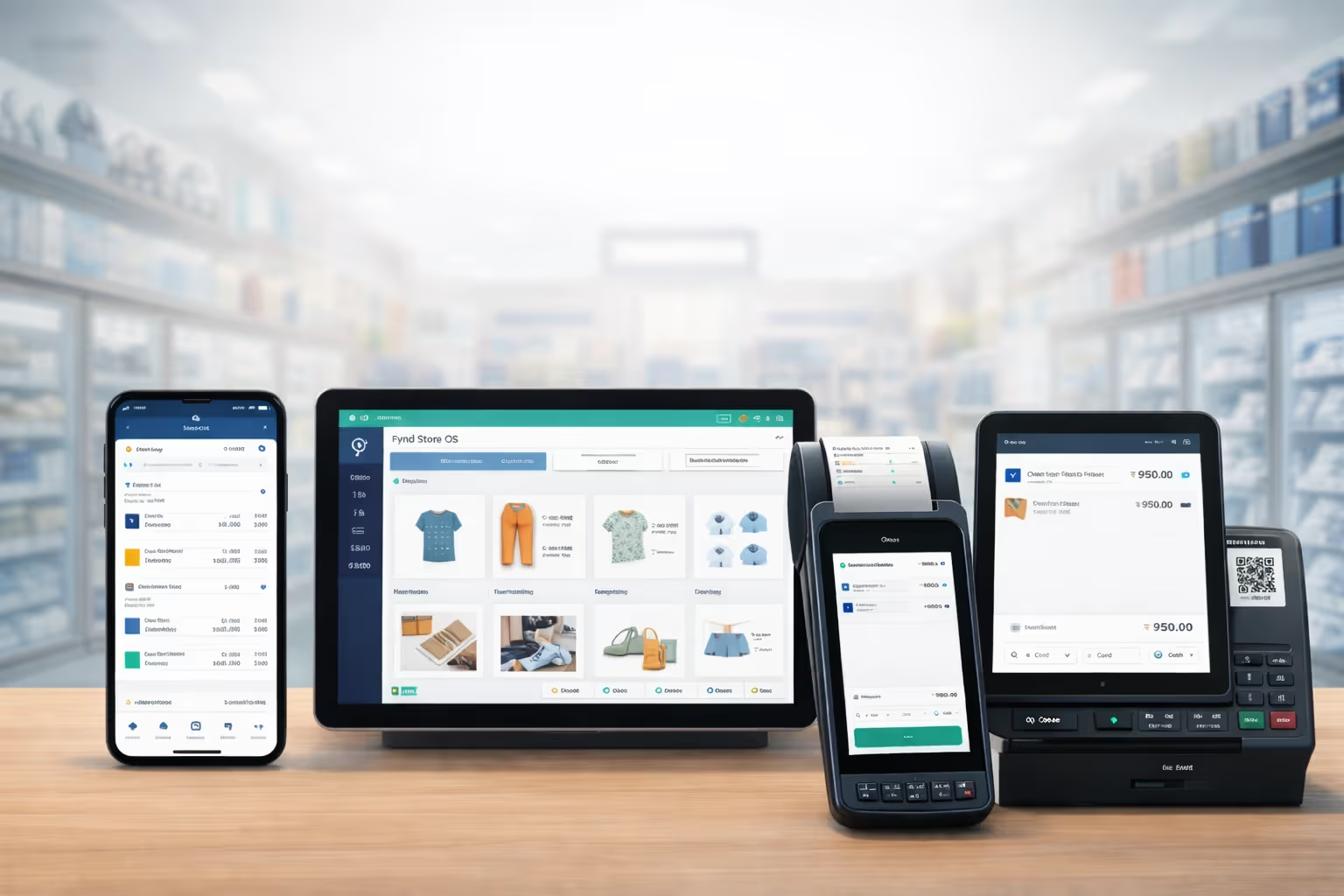Fleet GPS Devices & Tracking Solutions for Optimized Operations

Managing a fleet of vehicles comes with its own set of challenges. Fleet managers often face issues like rising operational costs, compliance with regulations, and ensuring the safety of drivers and vehicles. These problems can lead to inefficiencies that affect productivity and overall business performance. Understanding the tools available for effective fleet management is essential for overcoming these challenges and streamlining operations.
This blog post aims to provide insights into the latest fleet management devices and various fleet management systems. You will learn how these technologies can improve efficiency and safety by exploring devices such as dashcams, GPS tracking, and telematics. Each device plays a crucial role in addressing specific issues that fleet managers encounter daily, making it easier to maintain control over operations.
We will discuss different types of fleet management, including vehicle leasing, supply chain management, and fuel management. This comprehensive overview will equip you with the knowledge to make informed decisions for your fleet. Whether you are a seasoned fleet manager or a business owner looking to optimize operations, understanding these tools and types is key to driving success in fleet management. This blog will be a valuable resource to help you navigate the complexities of managing a fleet effectively.
What Is Fleet Management?
Fleet management involves overseeing and coordinating a company's vehicles to ensure efficient operations. This process includes tracking vehicle location, maintenance, and fuel consumption, all while ensuring compliance with regulations. By integrating technology, fleet managers can streamline operations, reduce costs, and improve overall safety for drivers and vehicles.
The goal of fleet management is to enhance productivity while minimizing expenses. This can involve utilizing various tools and devices to monitor vehicle performance, manage driver behavior, and optimize routes. Effective fleet management helps businesses make data-driven decisions that lead to better resource allocation and improved service delivery, ultimately contributing to increased profitability and customer satisfaction.
{{demo_tms="/styles/components"}}
Top Fleet Management Devices
Today, fleet management devices are crucial in enhancing operational efficiency and safety. These tools provide real-time data that helps fleet managers monitor vehicle performance, driver behavior, and overall fleet health. By leveraging these devices, businesses can make informed decisions that lead to cost savings and improved service delivery.
Understanding the various fleet management devices available is essential for optimizing your operations. From dashcams to telematics, each device serves a specific purpose, contributing to better management of resources and compliance with regulations. Below are some of the top fleet management devices that can transform your operations.
1. Dash Cams
Dash cams are vital tools for fleet management, providing video evidence of road incidents and driver behavior. These cameras can record both the road ahead and the vehicle's interior, helping to ensure accountability among drivers. In case of accidents, dash cams can offer crucial insights that protect against false claims and assist in training drivers to improve their skills.
2. Telematics
Telematics systems integrate GPS technology and onboard diagnostics to monitor vehicle location and performance. They provide real-time data on speed, fuel consumption, and engine health, enabling fleet managers to optimize routes and reduce idle time. By analyzing this data, companies can identify trends and areas for improvement, leading to more efficient operations. Telematics also enhances maintenance scheduling, as alerts can notify managers of potential issues before they escalate.
3. GPS
Global Positioning System (GPS) technology is essential for tracking vehicle locations in real time. Fleet managers can monitor routes, optimize deliveries, and reduce fuel consumption by ensuring drivers take the most efficient paths. GPS systems also help improve customer service by providing accurate arrival times and allowing for quick responses to route changes or emergencies. Additionally, GPS tracking enhances accountability, as managers can review driver performance and ensure compliance with company policies.
4. Asset Trackers
Asset trackers are essential for monitoring valuable equipment and cargo within a fleet. These devices use GPS or RFID technology to provide real-time location data, ensuring assets are secure and accounted for. Fleet managers can set up alerts for unauthorized movement or tampering, helping to prevent theft and loss. By tracking assets closely, businesses can improve inventory management and make data-driven resource allocation and operational efficiency decisions.
5. Fuel Sensors
Fuel sensors are designed to monitor fuel consumption and detect theft or leaks. By providing accurate data on fuel usage, these sensors help fleet managers identify inefficiencies and reduce overall fuel costs. Additionally, fuel sensors can help ensure compliance with environmental regulations by detecting leaks early. This technology can significantly save over time and contribute to more sustainable fleet operations by promoting responsible fuel usage.
6. Tire Pressure Monitoring System (TPMS)
A Tire Pressure Monitoring System (TPMS) helps maintain optimal tire pressure, enhancing safety and fuel efficiency. By monitoring tire pressure in real-time, TPMS can alert drivers to any issues that may lead to blowouts or decreased performance. Properly inflated tires improve fuel economy and extend tire life, resulting in cost savings. Additionally, TPMS enhances overall vehicle safety, as it minimizes the risk of accidents caused by tire-related issues.
7. Temperature Sensors
Temperature sensors are crucial for fleets that transport perishable goods. These devices monitor and record the temperature inside the cargo area, ensuring products remain within safe limits during transit. By providing real-time alerts for temperature fluctuations, fleet managers can take immediate action to protect cargo quality and comply with health regulations. Proper temperature management reduces spoilage and enhances customer satisfaction by ensuring deliveries meet quality standards.
8. Driver ID Reader
Driver ID readers enhance fleet safety and accountability by ensuring that only authorized drivers operate specific vehicles. These devices use RFID or biometric technology to confirm a driver's identity before starting the car. By tracking driver behavior and performance, fleet managers can identify areas for improvement and implement targeted training programs. This system also helps reduce unauthorized vehicle use, ensuring that drivers adhere to company policies and regulations.
9. Collision Avoidance System
Collision avoidance systems use advanced sensors and cameras to detect potential hazards on the road, providing alerts to drivers in real time. These systems help prevent accidents by warning drivers of obstacles, sudden braking, or lane departures. By promoting safer driving practices, collision avoidance technology can significantly reduce accident rates and associated costs. Furthermore, it fosters a culture of safety within the fleet, leading to improved driver performance and increased accountability.
10. In-Cab Tablets
In-cab tablets serve as multifunctional tools for drivers, providing access to navigation, communication, and fleet management applications. These devices allow drivers to receive real-time updates on routes, schedules, and delivery instructions, improving overall efficiency. In-cab tablets also facilitate better communication between drivers and fleet managers, enabling quick responses to issues that may arise during transit. These devices contribute to enhanced productivity and driver satisfaction, leading to a more efficient fleet overall.
Types of Fleet Management
Understanding the different types of fleet management is essential for businesses looking to optimize their operations. Each type serves a unique purpose, addressing specific needs within the fleet management ecosystem. These categories offer various strategies to improve efficiency and reduce costs, from vehicle leasing to driver safety. Knowing which type aligns best with your business objectives can help you implement effective solutions.
This section will explore several types of fleet management, highlighting their functions and benefits. By learning about these categories, fleet managers can make informed decisions that enhance overall performance and ensure compliance with regulations. Let's delve into the different types of fleet management systems that can transform your operations.
1. Vehicle Leasing
Vehicle leasing is a popular option for businesses that want to maintain a modern fleet without the high upfront costs of purchasing vehicles. This type of fleet management allows companies to rent cars for a specific period, often with flexible terms. Leasing provides access to the latest models and technology, reducing maintenance costs since leased vehicles are typically covered by warranty.
2. Supply Chain Management
Supply chain management focuses on optimizing the flow of goods and services from suppliers to customers. This type of fleet management integrates transportation, warehousing, and inventory management to ensure timely deliveries and minimize delays. By coordinating all aspects of the supply chain, businesses can improve efficiency and reduce costs. Effective supply chain management also enhances customer satisfaction by ensuring that products are delivered on time and in good condition.
3. Fuel Management
Fuel management is a critical aspect of fleet management that aims to monitor and control fuel consumption effectively. This includes tracking fuel purchases, usage, and efficiency to minimize waste and costs. By implementing fuel management strategies, businesses can identify inefficiencies, prevent fuel theft, and ensure compliance with environmental regulations. Monitoring fuel consumption also helps fleet managers make data-driven decisions regarding route optimization and vehicle maintenance, leading to overall cost savings.
4. Tolls and Compliance Services
Tolls and compliance services help fleet managers navigate the complexities of toll payments and regulatory requirements. This type of fleet management ensures that vehicles comply with local and national laws, reducing the risk of fines and penalties. By using automated toll collection systems, businesses can streamline payments and reduce delays during travel. Additionally, compliance services provide valuable insights into regulatory changes, helping fleet managers stay informed and maintain compliance across all operations.
5. Maintenance Services
Maintenance services are vital for keeping vehicles in optimal condition and reducing downtime. This type of fleet management involves regular inspections, repairs, and preventive maintenance to ensure that vehicles operate safely and efficiently. By prioritizing maintenance, fleet managers can extend the lifespan of vehicles, minimize unexpected breakdowns, and reduce overall repair costs. Proactive maintenance strategies also enhance safety, as well-maintained cars are less likely to experience issues on the road.
6. Driver and Vehicle Safety
Driver and vehicle safety management focuses on ensuring the well-being of both drivers and vehicles within a fleet. This type of management includes implementing training programs for drivers, monitoring driving behavior, and utilizing technology to enhance safety. By promoting safe driving practices, businesses can reduce accident rates and associated costs. Additionally, maintaining vehicle safety standards is crucial for compliance with regulations and enhancing overall fleet performance.
Fleet Management Benefits
Implementing effective fleet management practices offers numerous benefits that can significantly enhance business operations. These advantages contribute to a more efficient and profitable fleet from cost savings to improved safety. Understanding the benefits of fleet management can help businesses make informed decisions that positively impact their bottom line.
In this section, we will explore key benefits associated with fleet management. By leveraging the right strategies and technologies, companies can streamline their operations, boost productivity, and enhance overall performance. Let's take a closer look at the advantages that effective fleet management can provide.
1. Minimizing Overall Operational Costs
One of the primary benefits of fleet management is the reduction of operational and fuel costs. Businesses can lower fuel consumption and expenses by monitoring vehicle performance, optimizing routes, and implementing fuel-efficient practices. Additionally, effective fleet management helps identify and address inefficiencies, leading to better resource allocation and reduced operational overhead. These cost savings directly contribute to improved profitability, allowing businesses to invest more in growth and innovation.
2. Tracking Real-Time Vehicle Status
Fleet management systems provide real-time vehicle status tracking, allowing fleet managers to monitor their fleet's location and performance continuously. This visibility helps make informed decisions, such as adjusting routes to avoid traffic or reallocating resources as needed. Real-time tracking also enhances accountability, as managers can assess driver behavior and ensure compliance with company policies. This level of oversight leads to improved operational efficiency and a more responsive fleet.
3. Efficiently Strategizing Fleet Operations
With the insights gained from fleet management tools, businesses can strategize their operations more effectively. Analyzing data on vehicle performance, driver behavior, and fuel consumption enables fleet managers to identify trends and make data-driven decisions. This proactive approach helps optimize routes, improve scheduling, and enhance overall productivity. By implementing strategic planning based on accurate data, companies can achieve better resource utilization and increased operational efficiency.
4. Accurately Complying with Regulations
Fleet management is crucial in ensuring compliance with various local and national regulations. Businesses can avoid costly fines and penalties by tracking vehicle maintenance schedules, monitoring driver qualifications, and managing paperwork. Effective fleet management systems provide alerts for important compliance deadlines, helping managers stay informed and proactive. This focus on compliance not only protects businesses from legal issues but also enhances their reputation in the industry.
5. Improving Driver Safety
Enhancing driver safety is a significant benefit of fleet management. By implementing training programs, monitoring driving behavior, and utilizing safety technologies, companies can reduce accident rates and improve overall road safety. A focus on driver safety protects employees and reduces liability and insurance costs for the business. Safe driving practices contribute to a positive work environment, increasing employee morale and satisfaction.
6. Boosting Overall Productivity
Effective fleet management contributes to increased productivity across all operations. Businesses can enhance efficiency and reduce downtime by streamlining processes, optimizing routes, and leveraging technology. Real-time data enables quick decision-making, allowing fleet managers to respond promptly to changing conditions. Additionally, improved communication between drivers and managers leads to better coordination and fewer delays. Ultimately, a productive fleet translates into better service delivery and higher customer satisfaction.
How Does Fynd TMS Help?
Fynd TMS (Transportation Management System) is designed to streamline fleet operations and enhance overall efficiency. It provides businesses with the tools to manage their transportation processes effectively, from route optimization to real-time tracking. By integrating various functions into one platform, Fynd TMS simplifies logistics and reduces the complexity of managing a fleet.
With its user-friendly interface and advanced features, Fynd TMS allows fleet managers to make data-driven decisions. The system helps in monitoring vehicle performance, managing compliance, and improving driver safety. By leveraging Fynd TMS, companies can optimize their transportation strategies, reduce costs, and enhance service quality, ultimately contributing to their business growth.
Conclusion
Effective fleet management is crucial for businesses aiming to boost operational efficiency and cut costs. By understanding the various types of fleet management devices and their benefits, organizations can make informed choices that enhance their bottom line. Investing in advanced technologies like Fynd TMS can further streamline operations, improve safety, and increase productivity.
As the fleet management landscape evolves, staying informed about the latest trends and tools is essential. By embracing best practices and utilizing the right devices, businesses can ensure their fleets run smoothly and remain competitive.
Frequently asked questions
Fleet management involves overseeing and coordinating a company's vehicles and drivers to optimize operations, reduce costs, and ensure compliance with regulations.

The main types include vehicle leasing, supply chain management, fuel management, tolls and compliance services, maintenance services, and driver and vehicle safety.

Fleet management can minimize operational and fuel costs through route optimization, vehicle tracking, and implementing fuel-efficient practices.

Key benefits include improved safety, real-time vehicle tracking, compliance with regulations, increased productivity, and enhanced decision-making capabilities.

Fynd TMS streamlines transportation processes by providing tools for route optimization, real-time tracking, and performance monitoring, leading to increased efficiency.

Prioritizing driver safety reduces accident rates, lowers insurance costs, and promotes a positive work environment, contributing to overall business success.


























